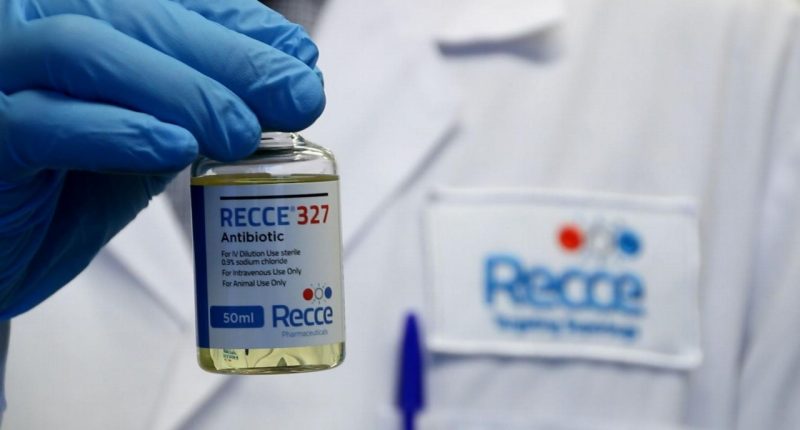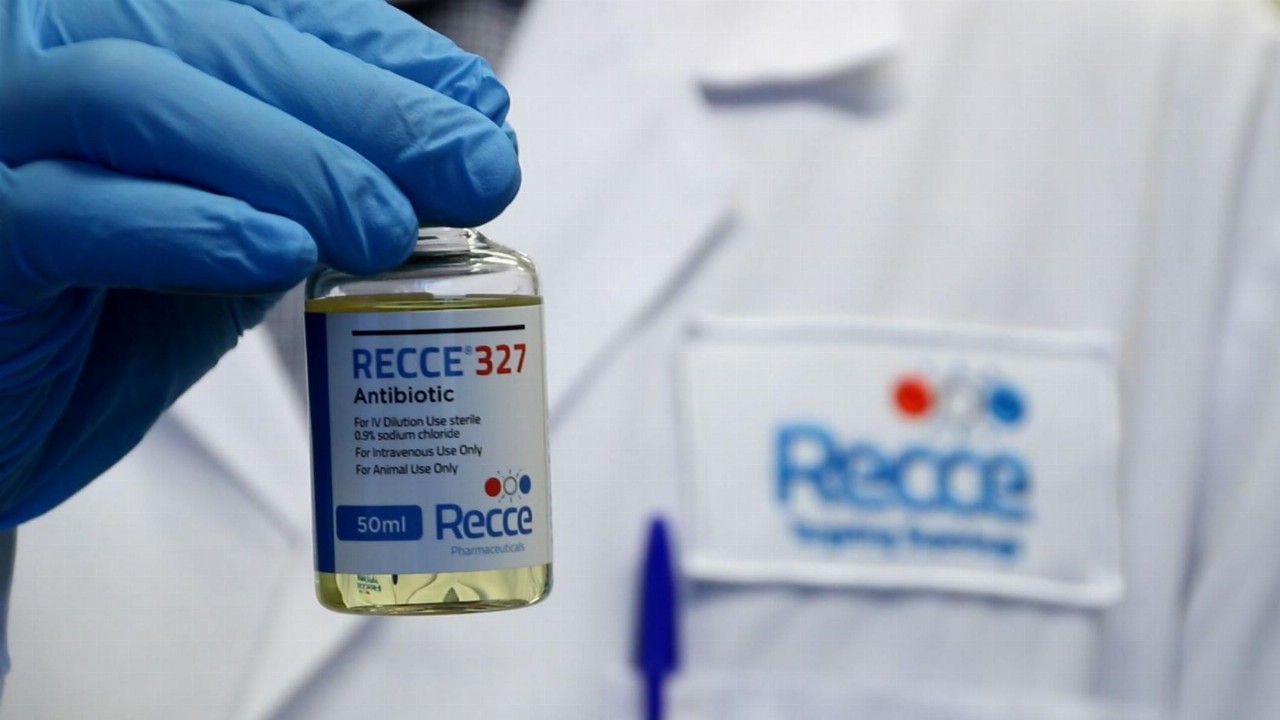- The global clinical trials market has been thrown into the spotlight in 2020 as healthcare giants scramble to create a COVID-19 vaccine
- Though Australia’s market is smaller than the likes of the U.S. and Japan, it’s growing quickly — outpacing the global average by around 5 per cent per year
- This is because clinical trials are globally renowned for their safety, efficiency, and quality of research
- In Australia, a drug is monitored in a fourth phase of research even after it has passed phase three trials and been approved for sale
- On the ASX, several stocks are presenting lucrative opportunities for investors
- These include the likes of Recce Pharmaceuticals (RCE), Imagion Biosystems (IBX), and Immutep (IMM)
- If savvy investors can place their bets on a clinical trial early enough, they put themselves in a prime position to reap the rewards
As healthcare giants scramble to create a COVID-19 vaccine, there is a growing interest in clinical trials and how exactly they work.
Of course, though public interest in clinical trials is rising, this part of the healthcare world has been a lucrative sector for the shrewd investor for years.
Research from Grandview valued the global clinical trials market at a neat US$46.8 billion (roughly A$64 billion) in 2019. Moreover, the market research giant expects the clinical trials sector to grow at a compound annual growth rate (CAGR) of 5.1 per cent until 2027.
The market is currently dominated by the United States, with around a quarter of all trials taking place in the States.
Yet, while Australia’s actual number of ongoing clinical trials is a far cry below countries like the United States, Germany, and Japan, Australian clinical trials are growing quickly, outpacing the global average by around 5 per cent per year.
This is because Australia’s health research and development (R&D) landscape is proving to be more and more ideal for clinical trials as big names in the drug development world direct their gaze down under.
For example, Australia has some of the globe’s top research facilities and organisations, like the Royal Children’s Hospital, Monash University, The Peter Doherty Institute for Infection and Immunity, and the Commonwealth Scientific and Industrial Research Organisation (CSIRO).
Yet, more than just having top-quality tech and researchers in some of the world’s best labs, every clinical trial involving unapproved medicines or medical devices has to meet international standards for clinical trials under the Therapeutic Goods Act 1989.
This provides a net of safety for those investigating new potential products and peace-of-mind for Australians taking part in the trials.
Australia is known for its robust and pragmatic regulatory pathway for clinical trials, under which a trial review cycle generally takes between four and eight weeks.
This makes Australian clinics even more attractive to major drug developers because once a research proposal has been submitted to the relevant regulatory body, the company can get real research underway quickly.
Under a scheme administered by the Therapeutic Goods Administration, a drug developer needs to submit a protocol, an investigator brochures and, in some cases, an independent toxicology report in order to get this process underway.
So, with all this in mind, what do clinical trials actually look like in Australia?
Australian clinical trial phases
Much like in the United States, clinical trials in Australia are conducted in phases, from early-stage dosage tests to large-scale administration.
The first three phases of an Australian clinical trial are generally the ones that get reported on, and so it’s perhaps not common knowledge that a fourth phase exists.
This is because the first three phases are the ones that get a product from the lab to the market.
In phase one, new drugs are generally tested for the first time in a small group of people — usually between 20 and 80 participants. This phase of testing generally looks to determine safe dosage ranges for the new drug and to identify any immediate side-effects.
In phase two, several hundred people are treated with the drug or device to determine if it works as well as intended — its efficacy — and to further evaluate its safety.
Phase three is generally seen as the most important phase because by this stage the drug or medical device has been proven to be safe and effective to a degree. The third phase of the trial generally tests the product several thousand participants to compare it to other approved devices and test for adverse effects and efficacy on a large-scale.
Most often, once a product passes phase three testing, it is approved for marketing and can be sold on Australian shelves — hence the importance of this third-phase testing. In the U.S., where trials are designed in a similar fashion, only around 6 per cent of all clinical trials make it to phase three.
Yet, in Australia, there is a fourth phase of clinical trials, which generally occurs after the product has already been approved for sale. This phase monitors the effectiveness of the product in the general population to collect information about adverse effects over the long-term.
During this phase, the drug or device can be investigated in its potential to treat a different condition or illness to that which it was originally planned, either alone or combined with other treatments.
This is part of why Australia is such an attractive destination for clinical trials. Even after a drug or device has been approved for market, the safety of its users is still a top priority for the Therapeutic Goods Administration.
All this means the further along in clinical trials a new device is, the more attention it receives. As such, investors who manage to pick promising products in early stages of testing are in the best position for major returns.
So, what does this look like on the ASX?
Recce Pharmaceuticals (ASX:RCE): The fight against superbugs
The problem with clinical trials is that even the quickest ones can take years and years to complete — and rightly so, given the importance of ensuring a new drug candidate’s safety and efficacy.
However, even as new treatments are invented, bacteria is evolving to “outsmart” these treatments. As it stands, multi-drug resistant bacteria, known as superbugs, are popping up faster than effective antibiotics are being developed.
This is where Recce comes in. The pharmaceutical company is emerging as a global leader in synthetic anti-infective drugs designed specifically to treat the new age of bacteria and viruses.
The company is testing some of its key compounds, dubbed RECCE-327, RECCE-435, and RECCE-529, against a range of antibiotic-resistant infections and viruses.
And Recce is already seeing early-stage success with these treatments. For example, RECCE-327 met some important objectives in April in a trial testing the drug against Methicillin-Resistant Staphylococcus aureus (MRSA) in rats with tropical burns.
Just a week earlier, the same compound was proven effective against the Influenza A virus in mice.
On top of these animal studies, Recce is taking on several early-stage clinical trials for its synthetics compounds. For example, a phase one/two clinical trial for bacterial burn wound infections was approved by the Human Research Ethics committee in October.
Moreover, two of Recce’s compounds were chosen in July for a government COVID-19 antiviral screening program run by CSIRO and the University of Melbourne at The Peter Doherty Institue.
Earlier this week, Recce management reported some encouraging early results from the screening program.
In September, Recce raised a neat $27.95 million through a share placement to help fund first-phase human clinical trials for each of its main compounds.
Imagion Biosystems (IBX): Next-generation cancer detection
Meanwhile, Imagion is in early-stage clinical trials for its cancer detection technology.
The company’s Magsense diagnostic imaging device is designed to be safer than conventional cancer detection methods and more sensitive, too.
Essentially, the tech sends bio-safe magnetic nanoparticles made to specifically target tumours into the bloodstream. These particles can find and then bind to tumours, and a medical scanning device is then able to track these particles — and, subsequently, the tumour — down.
The tech has been designated by the U.S. FDA as a “breakthrough Device”, which means it gets priority review and specialised treatment by FDA experts during its clinical trial phases.
The company announced in June it was planning to launch in-human clinical trials in Australia for MagSense, which marks the first time the tech will be used in a clinical setting.
This phase one study will evaluate the tech’s safety and initial effectiveness for lymph metastases in HER2 breast cancer.
IBX Executive Chairman Bob Proulx explained that there is a favourable regulatory and clinical testing environment for phase one trials in Australia.
“For Imagion, there are a number of advantages to conducting the study in Australia, including a lower overall cost and the ability to expand the study to include MRI and still execute within our desired timeframes, thanks to the recently announced collaboration with Siemens Healthineers,” Bob explained.
Imagion’s trials are slated to begin before the end of the year.
Immutep (ASX:IMM): New cancer treatment
Going hand-in-hand with Imagion’s cancer detection tech trials are Immutep’s cancer treatment trials.
The company’s Efti product, formally known as eftilagimod alpha or IMP321, is designed to treat different types of cancer.
Efti uses a protein known as Lymphocyte Activation Gene-3, or LAG-3, to treat cancer. LAG-3 was only discovered in 1990 by Immutep’s Chief Scientist and Medical Officer, Professor Frederic Triebel. The protein is involved in the regulation of the human immune system.
Immutep’s drug candidate is several different clinical trials in varying phases taking place in study centres across the U.S., Europe, and Australia. The most advanced of these trials is in phase two and is using Efti to target metastatic breast cancer.
Other Australian trials are testing the drug against solid tumours and melanoma.
The clinical trial opportunity
While COVID-19 clinical trials are dominating headlines in 2020 as the world awaits a vaccine, savvy ASX investors are keeping their eyes on broader trials across Australia.
A drug or medical device developer depends on clinical trials for its success, and Australia’s trial landscape gives these businesses the best chance to realise this.
This means early-stage trials present major growth opportunities for investors.
If punters can place their bets on a promising trial early enough, they put themselves in a prime position to share the rewards.
Recce, Imagion, and Immutep are just a small handful of the myriad clinical trial opportunities on the ASX. The question, then, remains: will investors spot the opportunities they present in time, or will they miss out?







